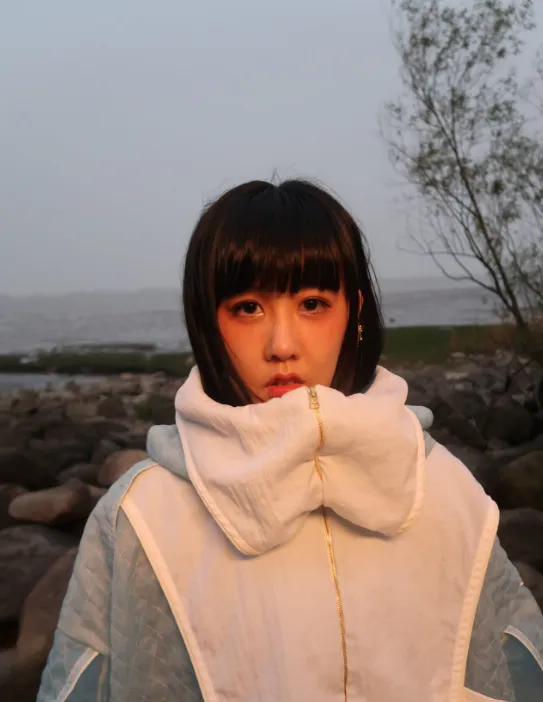
Lu Yang
Lu Yang, a Chinese-born multimedia artist, has emerged as a prominent figure in the contemporary art world. She creates immersive video works that seamlessly blend digital avatars, video game and anime aesthetics, along with elements of Buddhist theology and psychological exploration.
Biography of Lu Yang
Lu Yang was born in 1984 in Shanghai, China. She pursued her education at the China Academy of Art in Hangzhou, where she was mentored by the pioneering Chinese video artist Zhang Peili. She received both a BA degree (2007) and an MA degree (2010) in New Media Art.
The artist has held numerous solo exhibitions, including "The Power of Reinforcement" at Zendai MOMA, Shanghai, China (2009); "Lu Yang Selected Videos" at Ventana244 Art Gallery, New York, USA (2014); "Shanghainese in Yokohama" at Zou no Hana Terrace, Yokohama, Japan (2016); "Electromagnetic Brainology" at Spiral, Tokyo, Japan (2018); "Asrava World" at COMA, Sydney, Australia (2021); "False Awakening" at Kunstpalais, Erlangen, Germany (2022), and many more.
Lu Yang has also participated in various group shows, including "Random Code" at the Exhibition of Young Artists from the 80s Art Gallery of Hangzhou Teacher College, Hangzhou, China (2005); "Small Production–No.5" at Shopping Gallery, Shanghai, China (2008); "GO Young Artist Group Show" at OCAT Art Center, Shenzhen, China (2010); "Hypnosis" at TIVAC, Taipei, Taiwan (2011); "MOMENTUM InsideOut Screening Nightly" during Berlin Art Week, Berlin, Germany (2014); "Hyperlinks 2" at the Center for Contemporary Art, Tel Aviv, Israel (2016); "The Chasm" at Franz-Josef-Kai 3/17, Vienna, Austria (2019); "Cloud Walkers" at Leeum Museum of Art, Seoul, South Korea (2022), among others.
The artwork of Lu Yang has found its place in esteemed collections worldwide, including the Art Gallery of New South Wales, Sydney, Australia; Cc Foundation & Art Center, Shanghai, China; Contemporary Art Museum, Kumamoto, Japan; Asia Society and Museum, New York, USA; Sammlung Haus N, Kiel, Germany, and Athens, Greece; Scott Button Collection, London, UK; The Rockefeller Foundation, New York, USA, and more.
Currently, the artist lives and works in Tokyo, Japan.
Lu Yang's Art Style
Lu Yang crafts imaginative and often jarring images that embody an interdisciplinary fusion of religion, philosophy, neuroscience, psychology, and modern technology. Her work also alludes to real-life forms and structures of both natural and religious origins. Lu Yang's artistic repertoire encompasses various mediums, including game engines, 3D-animated films, video game installations, holograms, motion capture performances, virtual reality, and software manipulation. Moreover, the artist collaborates with esteemed scientists, psychologists, performers, designers, experimental composers, music producers, robotics companies, and pop stars.
Lu Yang's artistic approach is deeply rooted in elements of Japanese pop culture that held significant influence over her generation in China. Drawing inspiration from video games, anime, and science fiction, Lu Yang employs multimedia art as a means to delve into themes such as sexuality, asexuality, religion, mental health, and mortality, among other psychological subjects. Her work is firmly entrenched in the Japanese otaku subculture, a term that characterizes individuals with an intense passion for anime, manga, or video games.
In addition to drawing inspiration from new technologies, science, and pop culture, LuYang also acknowledges the profound influence of traditional Eastern religions, notably Buddhism. The narratives within LuYang's animations are likewise deeply informed by Buddhist philosophies, including the pursuit of enlightenment and the concept of reincarnation. A significant portion of her exploration within the digital realm is firmly grounded in Buddhist concepts.